Pyrantel pamoate
Synonym(s):1-Methyl-2-(2-[2-thienyl]ethenyl)-1,4,5,6-tetrahydropyrimidine compound with 4,4′-methylenebis(3-hydroxy-2-naphthoic acid);Pyrantel embonate;Pyrantel pamoate
- CAS NO.:22204-24-6
- Empirical Formula: C34H30N2O6S
- Molecular Weight: 594.68
- MDL number: MFCD00072037
- EINECS: 244-837-1
- SAFETY DATA SHEET (SDS)
- Update Date: 2025-12-11 08:41:34
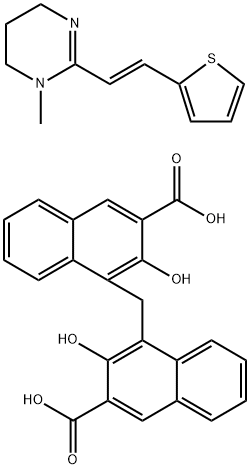
What is Pyrantel pamoate ?
Description
Pyrantel is a tasteless, odorless, yellow, crystalline solid. It is insoluble inwater, slightly soluble in dimethylformamide, and soluble in dimethyl sulfoxide.
Chemical properties
Pale yellow or yellow powder.
The Uses of Pyrantel pamoate
An antiparasitic agent used in the treatment of intestinal parasites such as hookworms and roundworms (Ascaris lumbricoides, aka ascarids in humans) in domesticated animals such as horses, cattle, sheep, pigs, cats, dogs, and many other species.
The Uses of Pyrantel pamoate
anthelmintic
What are the applications of Application
Pyrantel Pamoate is an anthelmintic compound
Indications
Pyrantel pamoate (Antiminth) is a agonist at the nicotinic acetylcholine receptor, and its actions result in depolarization and spastic paralysis of the helminth muscle. Its selective toxicity occurs primarily because the neuromuscular junction of helminth muscle is more sensitive to the drug than is mammalian muscle. This drug is administered orally, and because very little is absorbed, high levels are achieved in the intestinal tract. Less than 15% of the drug and its metabolites are excreted in urine.
Definition
ChEBI: Pyrantel pamoate is an organic molecular entity.
brand name
Antiminth (Roerig); Combantrin (Pfizer).
General Description
Odorless light yellow to tan crystalline powder. Tasteless. Used medicinally against nematodes in animals.
Air & Water Reactions
May be sensitive to prolonged exposure to air and light . Insoluble in water.
Reactivity Profile
Pyrantel pamoate may react with acids to liberate heat. May react exothermically enough with strong oxidizing acids to ignite the reaction products. Heat is also generated with caustic solutions. Generates flammable or toxic gases with alkali metals and hydrides and other reducing agents.
Fire Hazard
Flash point data for Pyrantel pamoate are not available; however, Pyrantel pamoate is probably combustible.
Mechanism of action
Pyrantel is a depolarizing neuromuscular blocking agent. In nematodes it causes a slowly developing contraction and paralysis. The immobilized parasites are then eliminated from the intestine. The neuromuscular junction of Ascaris is 100-fold more sensitive to pyrantel than to acetylcholine .
Clinical Use
Trans-1,4,5,6,-Tetrahydro-1-methyl-2-[2-(2 -thienyl)ethenyl]pyrimidine pamoate (Antiminth) is a depolarizing neuromuscularblocking agent that causes spastic paralysis insusceptible helminths. It is used in the treatment of infestationscaused by pinworms and roundworms (ascariasis).Because its action opposes that of piperazine, the twoanthelmintics should not be used together. More than halfof the oral dose is excreted in the feces unchanged.Adverse effects associated with its use are primarilygastrointestinal.
Side Effects
Pyrantel pamoate is active against several roundworms:
A. lumbricoides, Ancylostoma duodenale, Necator
americanus, and E. vermicularis. Pyrantel is an alternative
drug of choice in treating infections with A. lumbricoides,
E. vermicularis (pinworms), and hookworms
(N. americanus and A. duodenale). It is not recommended
for pregnant patients or for children under age
1 year.
Although most of the drug remains in the intestinal
lumen, enough can be absorbed systemically to cause
headache, dizziness, and drowsiness. No major adverse
effects have been reported on renal, hepatic, or hematological
systems.
Veterinary Drugs and Treatments
Pyrantel has been used for the removal of the following parasites
in dogs: ascarids (Toxocara canis, T. leonina), hookworms
(Ancylostoma caninum, Uncinaria stenocephala), and stomach
worm (Physaloptera). Although not approved for use in cats, it is
useful for similar parasites and is considered safe to use.
Pyrantel is indicated (labeled) for the removal of the following
parasites in horses: Strongylus vulgaris and equinus, Parasacaris
equorum, and Probstymayria vivapara. It has variable activity
against Oxyuris equi, S. edentatus, and small strongyles. Pyrantel is
active against ileocecal tapeworm (A. perfoliata) when used at twice
the recommended dose, although resistance has been reported.
Although there are apparently no pyrantel products approved
for use in cattle, sheep, or goats, the drug is effective (as the tartrate)
for the removal of the following parasites: Haemonchus spp.,
Ostertagia spp., Trichostrongylus spp., Nematodirus spp., Chabertia
spp., Cooperia spp. and Oesophagostomum spp.
Pyrantel tartrate is indicated (labeled) for the removal or prevention
of the following parasites in swine: large roundworms (Ascaris
suum) and Oesophagostomum spp. The drug has activity against the
swine stomach worm (Hyostrongylus rubidus).
Although not approved, pyrantel has been used in pet birds and
llamas. See the Dosage section for more information.
Properties of Pyrantel pamoate
| Melting point: | 266-267°C |
| storage temp. | Sealed in dry,Room Temperature |
| solubility | Pratically insoluble in water, soluble in dimethyl sulfoxide, pratically insoluble in methanol. |
| form | powder |
| color | yellow |
| Water Solubility | <0.1 g/100 mL at 19 ºC |
| BRN | 9034755 |
| EPA Substance Registry System | 2-Naphthalenecarboxylic acid, 4,4'-methylenebis[3-hydroxy-, compd. with 1,4,5,6-tetrahydro-1-methyl-2-[(1E)-2-(2-thienyl)ethenyl]pyrimidine (1:1) (22204-24-6) |
Safety information for Pyrantel pamoate
| Signal word | Warning |
| Pictogram(s) |
 Exclamation Mark Irritant GHS07 |
| GHS Hazard Statements |
H302:Acute toxicity,oral H315:Skin corrosion/irritation H319:Serious eye damage/eye irritation H335:Specific target organ toxicity, single exposure;Respiratory tract irritation |
| Precautionary Statement Codes |
P261:Avoid breathing dust/fume/gas/mist/vapours/spray. P305+P351+P338:IF IN EYES: Rinse cautiously with water for several minutes. Remove contact lenses, if present and easy to do. Continuerinsing. |
Computed Descriptors for Pyrantel pamoate
| InChIKey | AQXXZDYPVDOQEE-MXDQRGINSA-N |
| SMILES | C(C1=C(C(C(=O)O)=CC2=CC=CC=C12)O)C1=C(C(C(=O)O)=CC2=CC=CC=C12)O.C(/C1=NCCCN1C)=C\C1SC=CC=1 |
Pyrantel pamoate manufacturer
New Products
4,4-Difluoropiperidine hydrochloride tert-butyl 9-methoxy-3-azaspiro[5.5]undecane-3-carboxylate Indole Methyl Resin N-Isopropylurea N,N-Dicyclohexylcarbodiimide(DCC) MELDRUMS ACID 5-METHYLISOXAZOLE-4-CARBOXYLIC ACID Magnessium Bis glycinate Zinc ascorbate 1-bromo-2-butyne 2-acetamidophenol 9(10H)-anthracenone Erythrosin B, 4-Piperidinopiperidine 2-((4-morpholinophenylamino) (methylthio) methylene) malononitrile 2,4-dihydroxybenzaldehyde 3-(4-morpholinophenylamino)-5-amino-1H-pyrazole-4-carbonitrile Methyl 2-methylquinoline-6-carboxylate 2,6-dichloro-4-nitropyridine 4-Bromo-2-chlorobenzonitrile 2-(benzylamino)acetic acid hydrochloride 4-(tert-Butoxycarbonylamino)but- 2-ynoic acid 3,4-dihydro-2H-benzo[b][1,4]dioxepine 1-Phenyl-1-cycloprppanecarboxylicacidRelated products of tetrahydrofuran
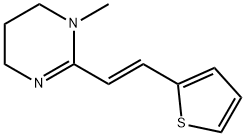



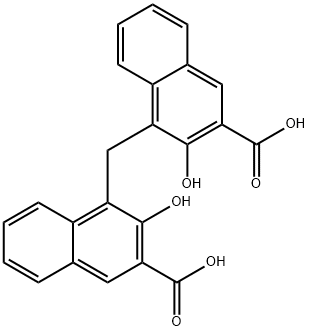
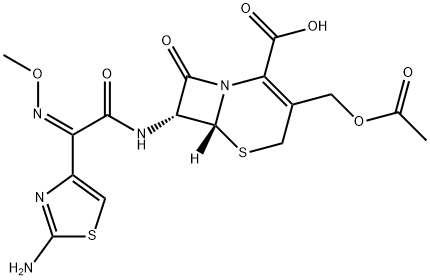
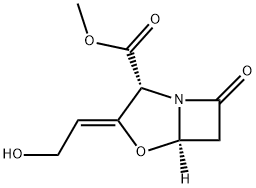
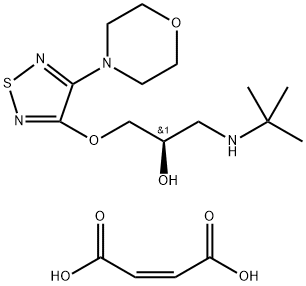
You may like
-
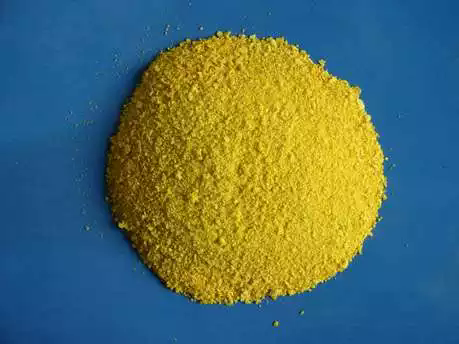 Pyrantel Pamoate 99%View Details
Pyrantel Pamoate 99%View Details -
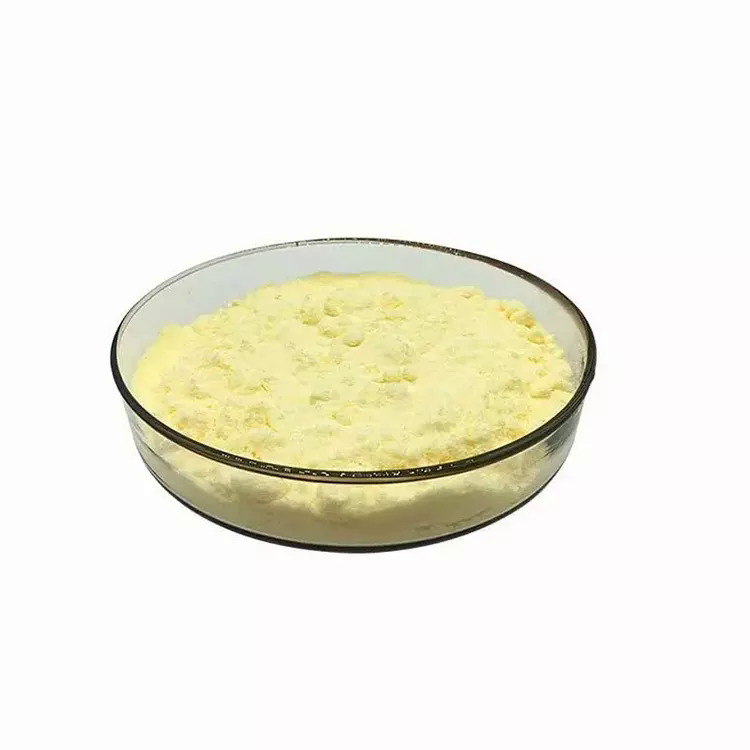 22204-24-6 Pyrantel pamoate 98%View Details
22204-24-6 Pyrantel pamoate 98%View Details
22204-24-6 -
 Pyrantel pamoate 98%View Details
Pyrantel pamoate 98%View Details
22204-24-6 -
 22204-24-6 PYRANTEL PAMOATE 95-99 %View Details
22204-24-6 PYRANTEL PAMOATE 95-99 %View Details
22204-24-6 -
 Pyrantel pamoate 95% CAS 22204-24-6View Details
Pyrantel pamoate 95% CAS 22204-24-6View Details
22204-24-6 -
 Pyrantel Pamoate CAS 22204-24-6View Details
Pyrantel Pamoate CAS 22204-24-6View Details
22204-24-6 -
 Pyrantel pamoate CAS 22204-24-6View Details
Pyrantel pamoate CAS 22204-24-6View Details
22204-24-6 -
 Pyrantel pamoate CAS 22204-24-6View Details
Pyrantel pamoate CAS 22204-24-6View Details
22204-24-6
